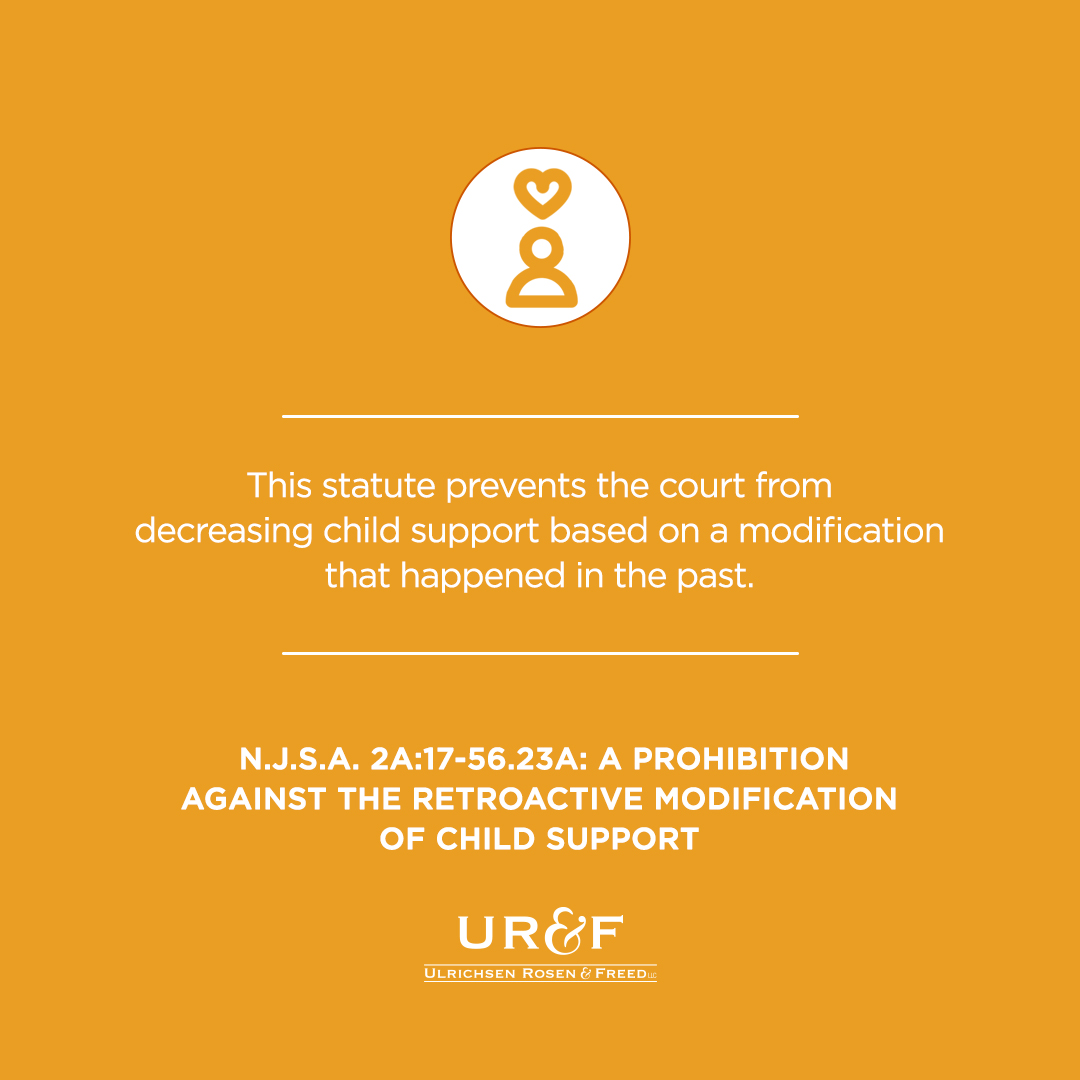N.J.S.A. 2A:17-56.23a: A Prohibition Against the Retroactive Modification of Child Support
N.J.S.A. 2A:17-56.23a prohibits the retroactive modification of a child support obligation beyond the filing date of a motion to modify the obligation. That is, this statute prevents the court from decreasing child support based on a modification that happened in the past. If an obligor finds out that beginning, two years ago, an obligee of a child support obligation has been earning 2 or 3 times the amount of income she earned at the time when child support was initially calculated, the court cannot decrease the child support obligation to align with the time when that obligee began earning that higher level of income. Rather, the court can only make the modified obligation effective as of the date that the obligor filed the motion requesting the modification. For this reason, it is critical for obligors to file an application to modify child support as soon as possible once they have determined that a change in circumstances to have occurred that could decrease their support obligation.
The relevant portion of N.J.S.A. 2A:17-56.23a specifically states, “No payment or installment of an order for child support, or those portions of an order which are allocated for child support established prior to or subsequent to the effective date of P.L.1993, c.45 (C.2A:17-56.23a), shall be retroactively modified by the court except with respect to the period during which there is a pending application for modification, but only from the date the notice of motion was mailed either directly or through the appropriate agent.”
After enactment of N.J.S.A. 2A:17-56.23a, courts have reviewed its application to various circumstances. A notable example includes a case in which an obligor was determined by a court to have withheld information about his higher income. In that case, the court held that while this statute prevents retroactive decreases in child support obligations, that it does not prevent retroactive increases. Lanza v. Lanza, 268 N.J. Super. 603 (Ch. Div. 1993). Another notable case involving N.J.S.A. 2A:17-56.23a, found that the anti-retroactivity provision of the statute did not apply to retroactive termination of a child support obligation based on the emancipation of a child. Mahoney v. Pennell, 285 N.J. Super. 638 (App. Div. 1995). That is, if a child is emancipated by court order, the child support obligation related to that child ends at the moment of that child’s emancipation.
For questions regarding the enforcement or modification of child support obligations, please contact the attorneys at Ulrichsen Rosen & Freed LLC. Our firm is focused on family law issues and served clients throughout Mercer County, Somerset County, Hunterdon County, Burlington County, Middlesex County, and other counties in the State of New Jersey.


